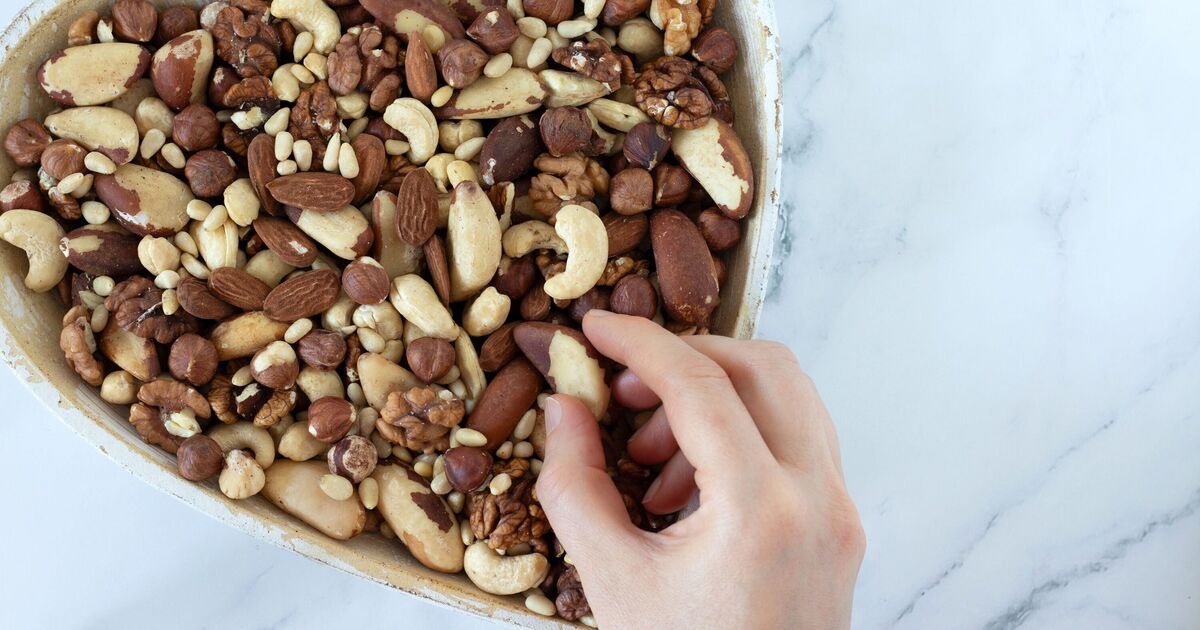Researchers have suggested that curbing the antioxidant effects of a mineral known as selenium could starve triple-negative breast cancer cells and hinder their spread.
Contrary to previous beliefs that selenium’s presence in foods like Brazil nuts, meat, mushrooms, and cereals was beneficial in combating cancer, recent findings in EMBO Molecular Medicine indicate otherwise. The study reveals that when these cancer cells do not cluster together—such as during metastasis—they rely on selenium to survive.
Dr Saverio Tardito from the Cancer Research UK Scotland Institute in Glasgow commented on the discovery: “We need selenium to survive, so, removing it from our diet is not an option, however, if we can find a treatment that interferes with the uptake of this mineral by triple negative breast cancer cells, we could potentially prevent this cancer spreading to other parts of the body.”
What is selenium and in which foods can it be found?
Dietitian Dr Carrie Ruxton from the Health and Food Supplements Information Service elaborates: “Selenium is a trace element found in soil,” she says. “In the body, selenium is well absorbed and is used to make a protein building-block (amino acid) called selenocysteine. Proteins made from this amino acid are vital for normal thyroid function, immunity, fertility and also protecting the body against cancers and cell damage due to toxins.
“Unfortunately, the UK has historically low levels of selenium in our soils, making our cereals poor sources,” says Ruxton. “So, we need to choose animal foods (turkey thigh, beef), fish (tuna) or imported foods (Brazil nuts are the richest source) to get what we need from the diet.
“A simple alternative is to top up with a multivitamin and multi-mineral supplement which will provide recommended doses of the nutrients we need on a daily basis. This complements our diets and doesn’t replace the natural sources of selenium.”
What are the health benefits of selenium?
Selenium is a powerful antioxidant. “Every day our body cells are under attack from free radicals produced during the normal activities of our metabolism and immune system,” explains Ruxton.
“Cells need a constant supply of antioxidants, including selenium, vitamins C and E, to protect them.”
This essential nutrient also plays an important role in maintaining thyroid function. “Correct levels of selenium helps maintain the thyroid and protect its tissue, while a deficiency may increase the risk of thyroid disease,” explains Lucy Diamond, registered dietitian and clinical director for Innovation at NHS weight management provider, Oviva.
Findings from some studies also suggest that it may also help lower cholesterol.
“According to studies, selenium can help to protect against cardiovascular disease by lowering ‘bad’ cholesterol and inflammation,” says Ruxton. “There may also be a role in cancer prevention and protecting against cognitive decline, but the evidence is inconsistent.”
Despite its benefits, consuming too much selenium over a prolonged period can be toxic, warns Diamond.
“This condition is called selenosis, and it can lead to symptoms like hair loss, brittle nails, garlic-like breath, and digestive issues,” he explains. “In extreme cases, it can even cause more serious problems, like nerve damage.”
“It’s not a common issue for most people, especially if you’re getting selenium through food, but it’s something to be mindful of if you’re taking supplements or regularly eating large amounts of selenium-rich foods like Brazil nuts.”
So how much should we be consuming?
“In general, men aged 19-64 years are recommended 75mcg a day and women aged 19-64 years are recommended 60mcg a day per day, but that amount can vary slightly depending on life stages, such as pregnancy or breastfeeding,” advises Diamond.
“Not getting enough selenium can lead to issues like weakened immunity or cognitive changes, though deficiency is fairly rare.”
“However, too much selenium isn’t good either, so it’s important to be mindful of the upper limit of 400 mcg per day, as overdoing it can lead to negative side effects like hair loss or digestive problems.”
Ruxton suggests that consuming three or four Brazil nuts daily is sufficient and urges those taking dietary supplements to always adhere to the dosage guidelines.









